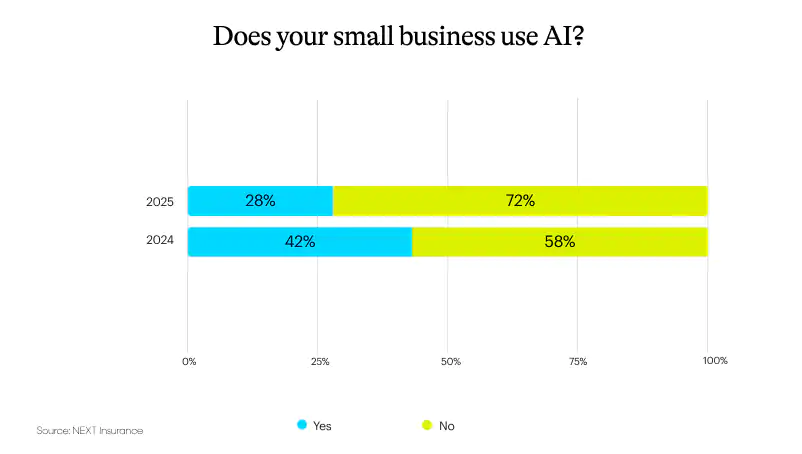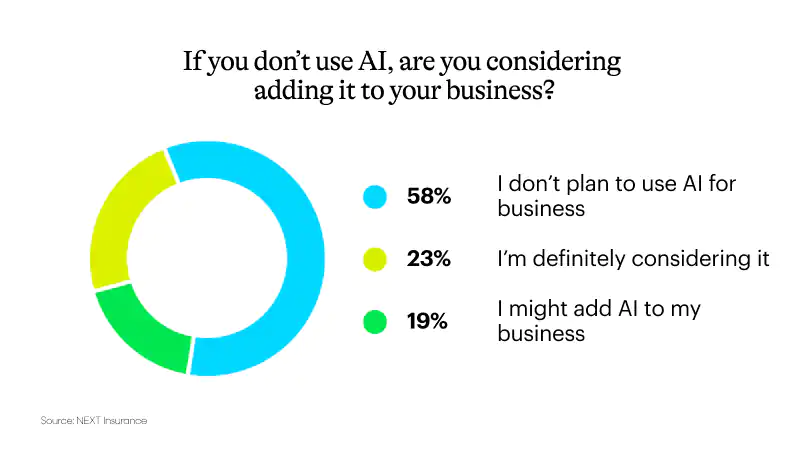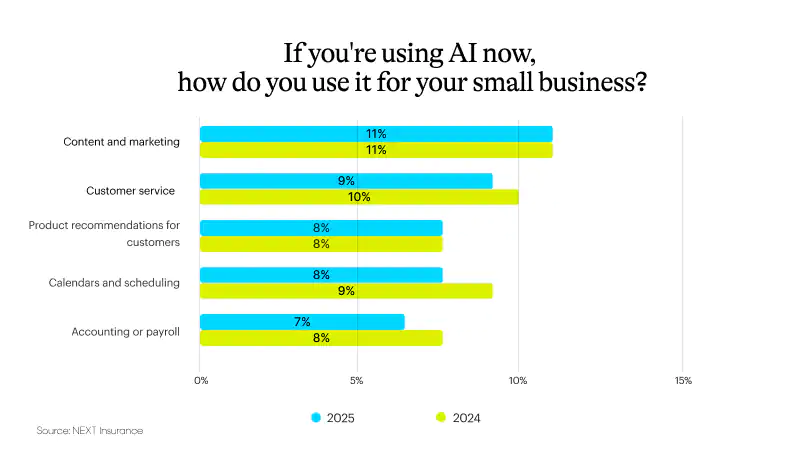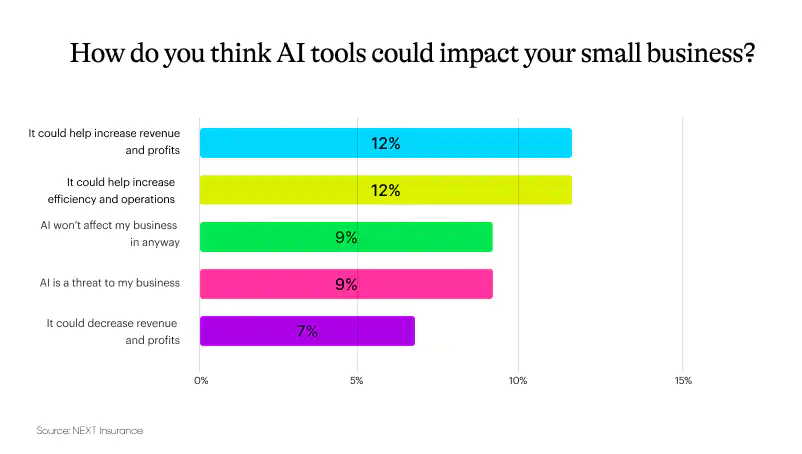Here’s a deep dive into the most common ways small businesses can put AI to work:
1. Personalized content and automated marketing
“In 2025, the key to leveraging AI in your marketing is to let it help you, not replace you, as the expert,” says marketing and AI expert Brendan Egan, Founder and CEO of digital marketing agency Simple SEO Group. AI marketing tools can help small businesses create personalized content and promotions. And small business owners are clued in: According to our survey, 11% of respondents use AI for marketing and content, making it the top use case.
Small business owners need to understand AI’s limitations and how to use it well. Says Egan, “While AI can write content, doing so may harm your site’s Google rankings. While AI can craft customer-facing emails, many companies have been caught sending something they may not want to because AI wrote it.”
And there is no shortage of tools to help you with your work. Jasper and Copy.ai can help automate copy creation. And Canva and Midjourney can assist with images and graphics.
“Currently, we are advising small businesses to leverage AI to help them with their marketing and not do it for them,” Egan says. “For example, if you’re writing a blog for SEO purposes to drive more traffic to your site, ask AI to come up with an outline and some facts for you so it is easier and faster for you to write the content. Ask AI to help you come up with creative ideas for ads in your niche or suggestions for keywords.”
2. Chatbots for immediate customer service information
NEXT’s survey found that 9% of small business owners use AI for customer service using tools like AI assistant chatbots. These smart bots can free up your time to focus on more complex customer interactions — and could even help with cross-sell or upsell opportunities.
Look for AI-powered chatbot platforms that allow you to build customized chatbots without coding skills.
3. Product recommendation tools for customized experiences
NEXT’s survey shows that 8% of business owners use AI for product recommendations to help small businesses boost sales and increase customer loyalty.
Platforms like Shopify’s AI-powered recommendations or Amazon Personalize analyze a customer’s purchase history and browsing patterns to suggest relevant products.
4. Virtual assistants for schedules and device control
Virtual assistants such as Siri, Alexa and Google Assistant aren’t just for personal tasks. They’re helpful in business, too.
NEXT’s survey shows 8% of business owners use AI to manage schedules and appointments, set reminders, answer quick queries and control smart devices at work.
5. Accounting and payroll tools
AI accounting and payroll tools can make financial management tasks easier, reduce errors and save time. 7% of small business owners already use these tools to operate their business, our study shows.
Popular platforms such as Quickbooks, Xero, Gusto and Freshbooks already use AI technology to automate repetitive financial tasks such as invoice processing, track expenses and manage payroll.
6. Data analysis and visual reporting
AI-powered data tools like IBM Watson and Google’s Looker Studio can help businesses understand complicated data like weaknesses, opportunities, product pricing and forecasting. These tools use machine learning to spot patterns and create clear visual reports to help you make more informed business decisions.
7. Intelligent document processing for invoices, shipping, transcripts and more
AI document tools can boost efficiency by pulling data from things like invoices, receipts and purchase orders to cut down on errors from manual data entry. And if your business paperwork is suddenly digital, it can be easier to store, sort and search.
Translation company owner Coviello uses AI to, “…generate internal docs more quickly, edit the templates given to clients and review the translation briefs.”
But AI for these tasks could introduce liability: “We once translated a supplier contract from German and the AI completely misread embedded acronyms. A human translator flagged it in two minutes, double-checked with the client, and fixed it before it caused damage. AI just moved on. In our field, that’s the problem.”
Common barriers to adopting AI for business
“Business owners generally fall into two buckets when it comes to integrating AI,” says Egan of Simple SEO Group. “Those that are using it too much, or those who are not using it at all. In our experience, there are very few businesses using AI ‘properly’.”
NEXT’s survey data reveals small business owners have mixed feelings about AI’s impact. While some owners (12%) believe AI could boost revenue, and operational efficiency (12%), many remain unsure or skeptical about its value. Some believe AI won’t affect their business in any way (9%), believe it’s a threat to their business (9%) or that it will decrease their profits (7%).










